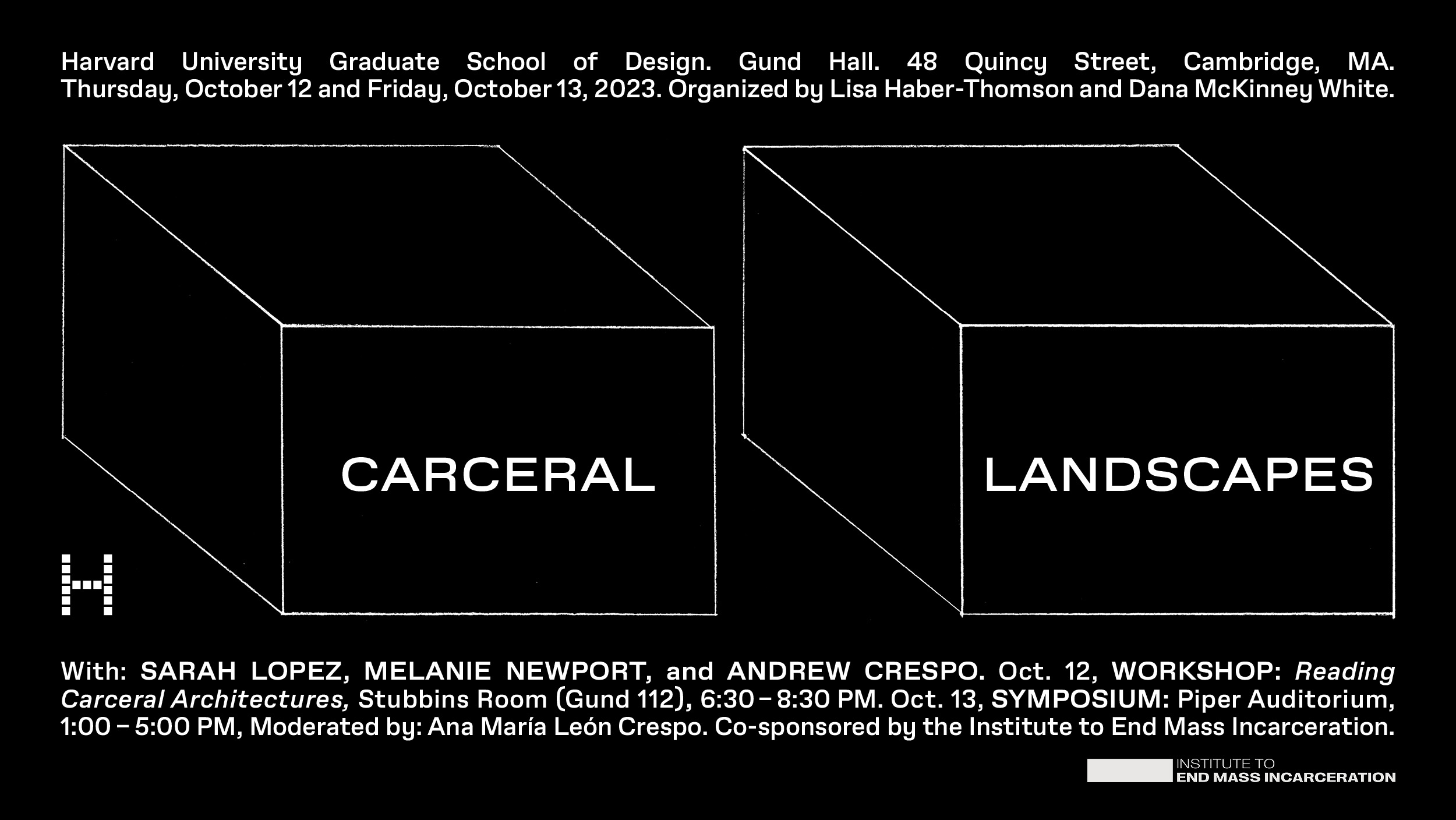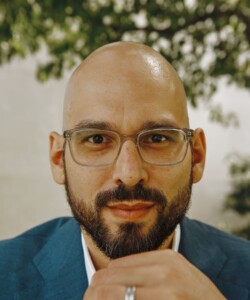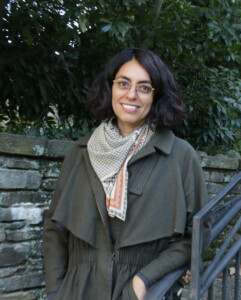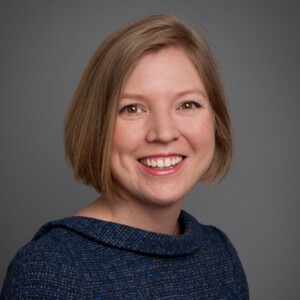Carceral Landscapes

Event Description
Imprisonment, quite literally, is all around us. The American criminal legal system, especially as it disproportionately incapacitates Black and Brown communities, forms a landscape of retribution and inequity. Carceral Landscapes focuses on the network of prisons, jails, detention centers, and their attendant infrastructure that comprises the backbone of the United States legal system. This symposium aims to expand conversations on the criminal legal system beyond law and police, centering the pivotal—though often unacknowledged—role of design in the construction of carceral facilities that surround us today.
Schedule
Thursday, October 12, 6:30 – 8:30 PM
Stubbins Room (Gund 112)
Reading Carceral Architectures Workshop
*Workshop open to Harvard students only.
Please sign up using the google form.
From the aesthetics of jail and prison buildings and their cell blocks to the shifting politics of urban form as cities negotiate the construction of courtrooms and negotiations of police budgets, to the regional rural networks that are shaped by the dislocation of people to detention centers and penitentiaries, the effects of incarceration reverberate across multiple geographic scales. This workshop invites students to “read” for evidence of architecture in carceral spaces as experienced by those imprisoned. We will work with prison writing archives to collate spatial conditions within jails and prisons, developing an editorial position to bring authors’ voices into conversation with designers. In teams, students will collaborate to unveil carceral landscapes of thresholds, materials, and climates. Students will have an opportunity to present this work as part of the public symposium the following day.
Friday, October 13, 1:00 PM
Piper Auditorium
Symposium
1:00 PM Opening Remarks by Lisa Haber-Thomson
1:30 PM Presentation by Sarah Lopez, “Points Along a Migrant’s Path: Mapping Imprisonment & Shelter in Texas”
1:50 PM Presentation by Melanie Newport, “A Bigger, Better Jail: Jail Overcrowding and the Making of Boundless Carceral Space in Chicago”
2:10 PM Presentation by Andrew Manuel Crespo, “Carceral Infrastructure and Prison Abolition: How Building Community, Not Prisons, Can End Mass Incarceration”
2:30 PM Reading Carceral Architectures workshop presentations
2:45 – 3:00 PM Break
3:00-4:15 Round-table discussion moderated by Ana María Leon Crespo
4:30 PM Closing Remarks by Dana McKinney White
Organized by Lisa Haber-Thomson and Dana McKinney White.
This program is co-sponsored by the Institute to End Mass Incarceration at the Harvard Law School.
Speakers
 Andrew Manuel Crespo is the Morris Wasserstein Public Interest Professor of Law at Harvard Law School, a founding editor of Inquest, and the Executive Faculty Director of the Institute to End Mass Incarceration. A national expert on criminal law and policy, his scholarship and public writings examine how the power structures and legal frameworks of the American penal system combine to produce the systems of carceral harm and oppression known as mass incarceration. Prior to joining the legal academy, Professor Crespo served as a trial attorney with the Public Defender Service for the District of Columbia, where he represented over one hundred clients facing criminal charges. Before that, he worked for three years as a law clerk, including two years at the U.S. Supreme Court, where he clerked for Justices Stephen Breyer and Elena Kagan. As a student at Harvard Law School in 2007, Crespo was the first Latino elected to serve as presidentof the Harvard Law Review. He returned to Harvard as a professor in 2015 and, in 2019, becamethe first Latino promoted to a tenured position on the law school faculty.
Andrew Manuel Crespo is the Morris Wasserstein Public Interest Professor of Law at Harvard Law School, a founding editor of Inquest, and the Executive Faculty Director of the Institute to End Mass Incarceration. A national expert on criminal law and policy, his scholarship and public writings examine how the power structures and legal frameworks of the American penal system combine to produce the systems of carceral harm and oppression known as mass incarceration. Prior to joining the legal academy, Professor Crespo served as a trial attorney with the Public Defender Service for the District of Columbia, where he represented over one hundred clients facing criminal charges. Before that, he worked for three years as a law clerk, including two years at the U.S. Supreme Court, where he clerked for Justices Stephen Breyer and Elena Kagan. As a student at Harvard Law School in 2007, Crespo was the first Latino elected to serve as presidentof the Harvard Law Review. He returned to Harvard as a professor in 2015 and, in 2019, becamethe first Latino promoted to a tenured position on the law school faculty.
 Sarah Lopez is an Associate Professor at the University of Pennsylvania in the Stuart Weitzman School of Design. Lopez is a built environment historian of 20th-century Mexico and the United States whose research focuses on material histories of migration, remittance development and landscapes, and migrant incarceration. She is interested in experimental historical methods, ordinary landscapes, and environmental humanities. Lopez’ book, The Remittance Landscape: The Spaces of Migration in Rural Mexico and Urban USA, won the 2017 Spiro Kostof Book Award from the Society of Architectural Historians.
Sarah Lopez is an Associate Professor at the University of Pennsylvania in the Stuart Weitzman School of Design. Lopez is a built environment historian of 20th-century Mexico and the United States whose research focuses on material histories of migration, remittance development and landscapes, and migrant incarceration. She is interested in experimental historical methods, ordinary landscapes, and environmental humanities. Lopez’ book, The Remittance Landscape: The Spaces of Migration in Rural Mexico and Urban USA, won the 2017 Spiro Kostof Book Award from the Society of Architectural Historians.
 Melanie Newport is an associate professor of history at the University of Connecticut. She teaches at the Hartford campus.
Melanie Newport is an associate professor of history at the University of Connecticut. She teaches at the Hartford campus.
Melanie is author of the book, This Is My Jail: Local Politics and the Rise of Mass Incarceration, out now with University of Pennsylvania Press. As a sweeping history of Cook County Jail in Chicago, This Is My Jail foregrounds the role of jailed people in contesting and constraining mass incarceration. This Is My Jail won the Sharon Harris Book Award from the University of Connecticut Humanities Institute.
As an interdisciplinary scholar of recent American politics and carcerality, her most recent research on disaster and incarceration in the 20th and 21st century builds on her interest in the liminal spaces of the carceral state. Her research has been supported by the University of Connecticut Humanities Institute, University of Illinois at Chicago Libraries, Black Metropolis Research Consortium, the University of Chicago, and the Center for the Humanities at Temple.
Melanie is a Series Editor with the Chicago Visions and Revisions series at the University of Chicago Press, where she acquires Chicago-related trade books in criminal justice, sociology, and history. She holds a PhD from Temple University.
![]()
Harvard University welcomes individuals with disabilities to participate in its programs and activities. If you would like to request accommodations or have questions about the physical access provided, please contact the Public Programs Office at (617) 496-2414 or [email protected] in advance of your participation or visit. Requests for American Sign Language interpreters and/or CART providers should be made at least two weeks in advance. Please note that the University will make every effort to secure services, but that services are subject to availability.
#GSDEVENTS